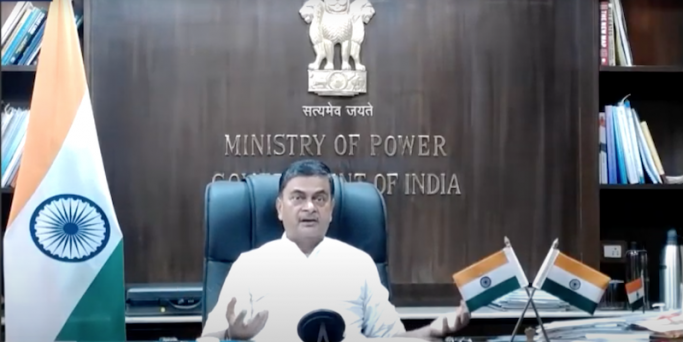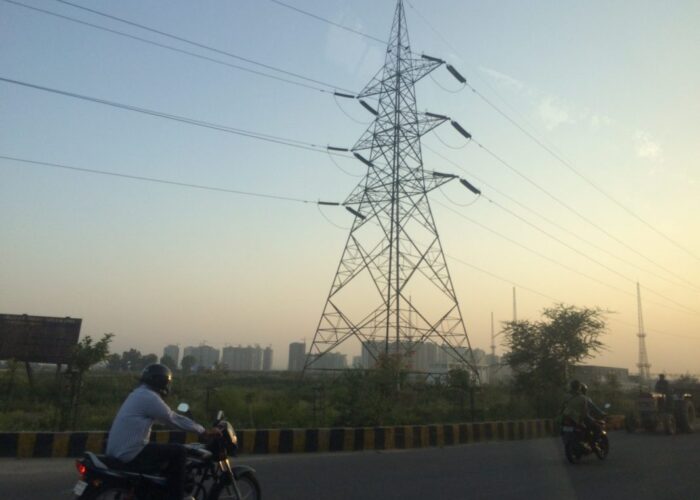
It is “unhealthy” for China to dominate solar manufacturing and production bases outside of the country are necessary to reduce the risk of supply chain disruptions, an Indian government official has said.
Speaking at an online event held by the Confederation of Indian Industry last week, India’s Minister of Power and New and Renewable Energy (MNRE), Raj Kumar Singh, said the country wanted to accelerate its renewable energy growth through a combination of incentives to manufacture domestically, the creation of local clean energy jobs and tariffs on imports.
Try Premium for just $1
- Full premium access for the first month at only $1
- Converts to an annual rate after 30 days unless cancelled
- Cancel anytime during the trial period
Premium Benefits
- Expert industry analysis and interviews
- Digital access to PV Tech Power journal
- Exclusive event discounts
Or get the full Premium subscription right away
Or continue reading this article for free
Singh said India had ambitions to become a world leader in solar manufacturing and lamented the dominance of Chinese companies in the industry. “We want that capacity to be added based on manufacturing in India, we don’t want to export jobs to China or to any other country,” he said.
Singh said it was “unhealthy” for manufacturing to be concentrated in just one country and that other production bases were needed “so that there is no disruption in the world supply chain”.
In a drive to get companies to start manufacturing in India, the government will introduce incentives through land availability and financial support, as well as imposing trade tariffs on products made outside the country.
“We have decided to set up a tariff barrier,” said Singh. “So if you want to sell in India, you have to set up shop here or you have to set up manufacturing here.”
In March, India announced it will introduce a 40% basic customs duty (BCD) on solar modules as of April 2022 to cut the reliance on imports and expand the country’s PV manufacturing base.
Singh said that the government had “received expressions of interest for large quantities of manufacturing of modules” since the announcement.
In addition, as part of a “slew of measures”, the government will introduce a ‘green tab’ whereby clean energy companies can set up generation capacity in India through an ‘open access’ system that will provide them with land development rights within 15 days. It will also allow companies to procure renewable energy from a distribution company at cost through ‘sub’ power purchase agreements (PPAs), said Singh.
In April, the MNRE established a production-linked incentive (PLI) programme that aimed to incentivise companies setting up integrated, higher capacity plants.
Currently, around 80% of India’s local demand for solar modules is met through imports from other Asian countries such as China, Vietnam and Malaysia and India has a target of adding 280GW of solar power installation by 2030.
“The renewable energy sector in India has grown multifold [sic],” said Singh. “It has attracted an investment of almost US$70 billion in the last seven years and this really indicates the progressive and investor friendly ecosystem that exists today in India.”
Last month, research by JMK Research and Analytics said that module and cell manufacturers in India will expand their production capabilities by 13.75GW for modules and 6.9GW for solar cells over the next 18 months.
The full talk can be viewed by clicking this link.






